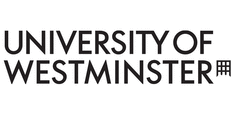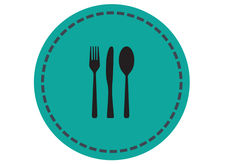The loyalty card gives those who have purchased four vegetarian meals in the canteens a free veggie meal. This is complemented with vegetarian recipes on their blog and vegetarian cooking classes, which includes organic and free range ingredients, integrating other forms of ethical eating into these in the hope people will incorporate these thoughts into their practices at home. It’s linked in with the external initiative Part-Time Carnivore’s Portal, and University of Westminster have a “team” on this portal. This allows you to pledge how many days you will be meat free per week. The portal then gives you calculations for the following week of land, water, and CO2e saved because of all the pledges of your team. There is also a figure for the total savings.
Communication
The approach rewards vegetarians by default, and also shifts the language from vegetarianism to meat eating. Communication of a reduction of meat in university and college catering is an issue many institutions have brought up, with some opting not to communicate this reduction at all for fear of a backlash. As part of their Sustainable Food Action Plan, instead of offering “meat free Mondays”, every second Monday the University of Westminster offers a part-time carnivore menu – one meat option and two veggie options. Caterers are also asked to put the vegetarian option on the menu first in order to combat the idea that the meat option is the default.
Encouraging Healthy Choices
Other groups are able to form a team on the Part-Time Carnivore portal for free and this provides you with a starter toolkit as well as some veggie recipes to share, which Westminster does to encourage vegetarian habits at home as well as on campus. There is information on the portal on “Meat and Land”, “Meat and Water”, “Meat and Climate”, and “Meat and Me”
Meat and Me - looks at the health impacts of meat and notes that while pasture fed, organic meat is probably good for your health, it’s rather expensive; and factory farmed and processed meat, while cheap, is not good for your health. The page recommends eating meat no more than three times a week and notes that the World Cancer Research Fund recommends reducing red meat in your diet and cutting out processed meat altogether.
Meat and Climate - it explains the impacts of animal agriculture on climate change, splitting the causes into four areas: the impact of CO2 and methane emissions from large populations of livestock; the impacts of oil being burned for processing/transportation of animal feed and meat; forests being torn down to make room for animals and animal feed; nitrous oxide released from animal waste and fertilisers used on feed crops.
Meat and Land – it shows that 90% of all soy crops in the world are used as animal feed, which is an inefficient approach to feeding the planet where the global population is predicted to reach 9 billion by 2050.
Meat and Water - it points out that one meat-free day saves enough water for 20 baths and notes that water for livestock and animal feed is a problem alongside water pollution from livestock farming.
To promote this wider, University of Westminster are working with Friends of the Earth who are looking to pilot a similar scheme in other institutions; the university will be sharing promotional ideas and user data to improve the programme.
If you are looking to engage with your Catering Department read the 'Engaging Professional Departments' Guides here. Or contact the EAUC-Scotland Team for further training, facilitated workshops or meetings.







 Except where otherwise stated, content on this site is
licensed under a Creative Commons Attribution 3.0 License.
Except where otherwise stated, content on this site is
licensed under a Creative Commons Attribution 3.0 License.
